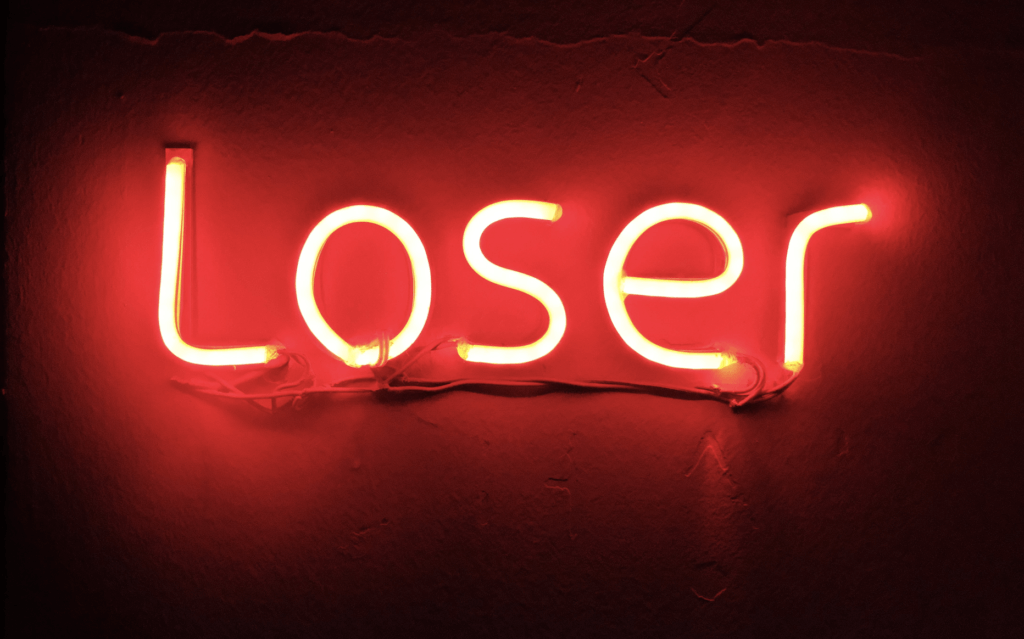A totally objective and unbiased analysis by a practicing small-firm lawyer
I have many friends and acquaintances at big-name law firms, and I fear this week’s post may ruffle some feathers. But stay with me, BigLaw Fivers. As you will see, I conclude that it sometimes makes sense for clients to pay the high rates commanded by lawyers at big-name law firms. This is no manifesto against those firms.
Still, have you seen the hourly rates that the most prominent law firms charge business clients these days? I would give some examples, but if I say something like “can you believe partners at XYZ firm charge $950/hour?” the next thing you know people will think, “Ha! that’s nothing, ABC firm is charging . . .”
So I won’t get into numbers. But you know what I’m talking about.
These super-premium rates seem to coincide with the increased importance of branding in the competition for high-end business clients. I’m guessing this is no accident. If you look at the firms charging the very highest rates, I would bet most of them have one thing in common: they are firms everyone has heard of (at least everyone who has some familiarity with the legal field).
I doubt you will find a lot of “no-name” firms charging the highest rates for legal services. Those that are, I congratulate you. But most of the firms that charge the kind of rates I’m talking about are the “household names” of law practice.
Are these sky-high hourly rates justified? Should lawyers criticize these rates as excessive, or should we accept them as what the “market will bear”?
Personally, I’m ok with sophisticated clients paying whatever they agree to pay for their legal work. I don’t see it as an ethical issue.
But is it smart for business clients to pay premium rates for big-name law firms? Let’s look at the main reasons clients pay these rates, and whether those reasons hold up to scrutiny.
1. They’re just better
The first reason clients are willing to pay a premium for big-name law firms is the reason those firms want clients to think is the reason: they’re just better. But are they actually better? And even if they’re better, are they that much better?
Full disclosure: I do not work for a big-name firm, so I am probably a wee bit biased.
But I will give the prominent firms their due. The reality is that most superstar attorneys are going to work at law firms everybody has heard of. If you’re a superstar lawyer at a lesser-known firm, don’t be offended. I said “most,” not “all.”
And if us small-firm lawyers are honest, we’ll admit to ourselves that most of the very best lawyers work in BigLaw, because that’s where the money is. And the prestige. But mostly it’s the money. And we might be just a slight bit envious.
Second, even aside from the superstar attorneys, it is unlikely that a partner at a prominent BigLaw firm is going to be incompetent. (Notice I said “unlikely,” not “impossible.”) So when clients hire big-name law firms, they can usually rest assured that the lawyer in charge of their case will at least be competent. That lawyer probably wouldn’t have made partner otherwise.
But it’s not that unlikely that a partner at a big-name law firm will be mediocre. If that sounds critical, it’s not really. By “mediocre” I just mean someone with average practice skills. Yes, there are many top-notch lawyers at big-name law firms, but believe me, there are plenty of average ones too.
How do mediocre lawyers become partners at elite law firms? In most cases I would bet it’s because they bring something else to the table, like excellent business development skills, or a family, personal, or political connection to a major client. In some cases, they are just good at promoting themselves and taking credit.
But let’s not be too snarky. Most of these lawyers have worked their butts off. And like I said, most of the very best lawyers are at big-name firms. If your lawyer really is that much better than the competition at the no-name firms, and if your company can afford it (more about that later), then there is some logic to paying a premium for excellent legal services.
Also, let’s acknowledge there are plenty of lawyers at well-known law firms who are not charging the kind of rates I’m talking about. So if you’re a client paying reasonable rates for a lawyer at a big-name firm and you’re happy with the work, that’s great.
This post is about the rates that make eyes pop. Are there any other reasons to justify such rates?
1a. Expertise and specialization
I call this reason “1a” because it’s related to reason 1, but slightly different. Big-name law firms don’t just tout their lawyers as better, they also promise expertise in highly specialized areas of law practice that business clients sometimes need.
This is not just hype. There are some practice areas where you’re not going to find anybody experienced who isn’t at a big law firm or a high-priced boutique. For example, I’m guessing there aren’t a lot of inexpensive small-firm lawyers who have done a lot of bet-the-company patent litigation. And a typical small firm is not going to have experience defending massive securities fraud class actions, or doing M&A work for Fortune 500 companies, etc. You get the idea.
Still, if you are a client who is willing to pay a premium for specialization, ask yourself two questions. First, is the work you are sending that big-name firm really that specialized? I often see prominent law firms handling what I would call fairly “routine” matters.
Second, are there lawyers with similar expertise at lesser-known firms who charge less? It may take some hustle to find them, but I would bet that in most cases the answer is yes. You might even already know some lawyers like that. But you stick with the well-known firm because . . .
2. “Nobody ever got fired for buying IBM”
Now we’re moving into the less compelling reasons to pay high rates for legal work. But this one still has a certain logic to it. If you own the company, you can hire whoever you want and if it goes bad, you’re probably not going to fire yourself. But if you just work at the company, then the last thing you want is to hire a law firm nobody’s heard of, have the case go south, and then get blamed for hiring the wrong firm.
In the computer world (where, full disclosure, my dad owned a small business, so more bias), this concept is expressed in the cliché “nobody ever got fired for buying IBM.”
Is this a good reason to choose a big-name law firm over a no-name law firm with similar experience and expertise?
I guess it depends on your perspective. If you’re an in-house lawyer at a big company and you’re looking out for numero uno, then it makes sense to insulate yourself from criticism by selecting the firm your CEO will instantly recognize.
But if you’re truly looking out for the company’s interests, then you should at least consider less expensive options. After all, the company has entrusted you with spending its money wisely.
Which brings me to . . .
3. The “steakhouse” or “expense account” effect
I specifically remember the last time I had dinner with my wife at one of those expensive steakhouses (and I don’t mean Saltgrass). Bear in mind, as a kid growing up in south Austin, for me a fancy restaurant was the Red Lobster on South Lamar. I’m just as happy to get dinner from a taco truck, but I have to admit, this upscale steakhouse was really good.
The prices, on the other hand, were outrageous.
Prices that high give me some moral discomfort; there is something almost obscene about paying that much for a meal when millions of people don’t have enough food to eat. Then again, the amount of money I spend on Starbucks in a year could probably bring clean drinking water to a third-world village, so maybe I’m just a hypocrite.
Anyway, the point is that I was fine with paying the exorbitant price at the swanky steakhouse. Was it because the food was so exquisite? Well, it was good, but not that good. No, the reason I was fine with shelling out big bucks for a piece of grilled meat is that a client had generously sent me a gift card as a thank-you for doing a good job on his company’s case. In short, I wasn’t spending my own money.
I’d bet this is part of the reason upscale steakhouses exist in the first place: many of their patrons are business people taking clients to dinner on the company’s dime. It’s the “expense account” effect.
This is the same reason clients will sometimes select a law firm that charges twice as much for the same quality of work: the person making the decision is not spending his own money. I would even venture to say this could be the main reason.
This strikes me as an understandable reason for paying more, but not a good reason. Would the company’s general counsel pick the most expensive firm if she had to pay the fees out of her own pocket? I doubt it.
Unless . . .
4. Snob appeal, or the “Mercedes” effect
Let’s say the general counsel is rich. And let’s say he wants everyone to know it. In that case, what better way to let everyone know how much money you have to burn than to hire the most expensive law firms?
Now apply that to big companies as a whole.
Snob appeal. It’s the reason people are willing to pay more for a Lexus than for a Camry. Granted, the Lexus may be a really good car. It might even perform a little better than the Camry.
But that’s not why people pay more for a Lexus. Do you think they would pay the same price for a Lexus if they had to slap a Toyota emblem on it? No way. The whole point is to send the message “I make enough money to afford a Lexus.”
Again, I think the same principle is sometimes at work when big companies pick their lawyers. They’re not just paying for the services, they’re paying for the name. They want people to know their lawyers are expensive. It sends a message: “We’re [insert name of global company], our revenue is more than the GDP of most nations, and we can afford to pay for the very best lawyers to be found.”
This strikes me as the least compelling reason to pay a premium for legal services.
But again, we must give big-name firms their due. The motivations for hiring them are usually intertwined. If companies are willing to pay high rates because the lawyers really are that good, I don’t see much harm if a little snob appeal gets mixed in.
My advice to clients: just be clear with yourself what your reasons are.
____________________
Zach Wolfe (zach@zachwolfelaw.com) is a Texas trial lawyer who handles non-compete and trade secret litigation at Zach Wolfe Law Firm (zachwolfelaw.com). Thomson Reuters named him a Texas “Super Lawyer”® for Business Litigation in 2020, 2021, and 2022.
These are his opinions, not the opinions of his firm or clients, so don’t cite part of this post against him in an actual case. Every case is different, so don’t rely on this post as legal advice for your case.





Comments:
Enjoyed this post, Zach. Well done!
Thanks, Todd! I appreciate it.